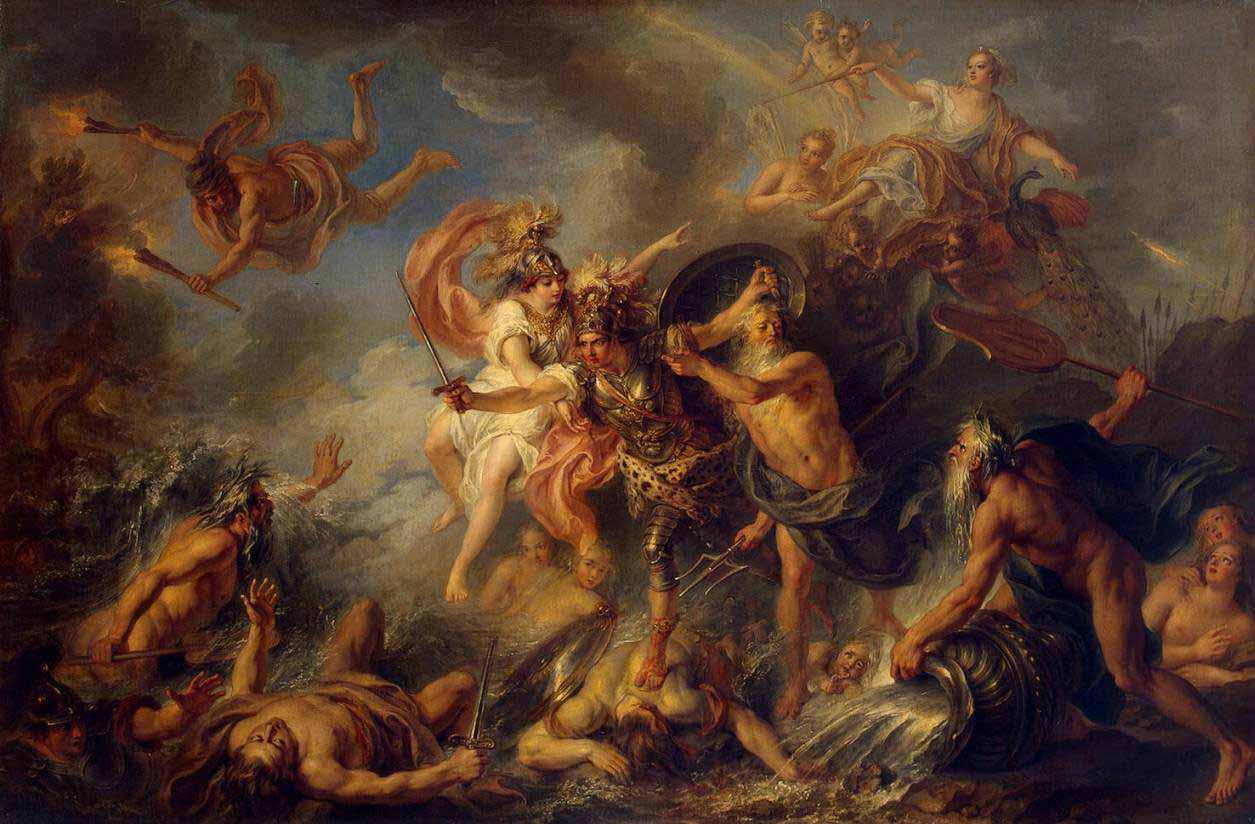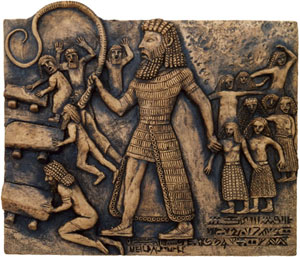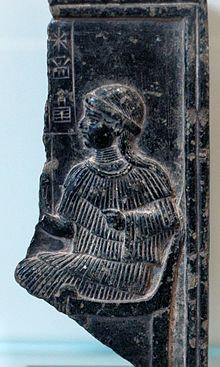What immediately comes up in your mind, when one hears the word “power?” It might remind you a great variety of people ranging from ancient mythology such as Achilles and Hector from The Trojan War and prominent political figures like President Barack Obama. As you would probably realize, despite the fact that these people live in different eras, geographic locations, and conditions, they have one thing in common—they are all male. Thus, it is understandable that people tend to spontaneously associate the word “power” with men. However, according to the definition given by Merriam-Webster Dictionary, “power” simply means “a person that has a lot of control and influences over other people.” There is nothing in the dictionary that indicates power is limited by gender. In fact, plenty of multipliable evidence within literary devices proved that the word “power” could be applied to women as well. The Book of the City of Ladies and Iliad are the two literary works that prove women could have powers that may be comparable to men or even exceeding men in terms of physical power, creation power, power of brilliance, and the indirect power.

An Image of the Mighty Queen Panthesilea Source:http://www.talesbeyondbelief.com/
Three prominent Amazonian figures in the Book of the City of Ladies show physical power is not a privilege possession of men. Two of the closest relatives of Queen Orithyia, Menalippe and Hippolyta, are often defined as the “finest” and “most valiant of all the Amazons,” because they have shown their physical strength through the battle with Greek society. These two strong women fought against the mighty hero Hercules and the valiant king of Athens. Contradictory to what most people would think, Hercules and Theseus were brought down from their horses by these two women. Menalippe and Hippolyta brought down two of the most valiant knights who ever lived, with their individual unbelievable physical strengths. Moving to Queen Penthesilea, who inherited the great physical strengths, from her mother Orithyia, sought revenge against the Greeks for the death of Hector. Queen Panthesilea struck down and almost killed Achilles’s son, Pyrrhus. The Queen Penthesilea had physically defeated Pyrrhus, who is a very fine soldier, by using her own strength. Yet the power of women is not just contingent upon their physical strength only; it is far deeper than that concept.

The Ancient Latin Alphabet Invented by Carmentis Source: www.thebookmarkshop.com
There are several women in The Book of the City of Ladies who are respected and worshipped by the people for their power of creation. Carmentis, an extraordinarily intelligent and gifted daughter of the King of Arcadia, is particularly known for her power to create innovative things. To escape from frequent upheavals, Carmentis along with other people, left their native land and settled in Mount Palatine, where she invented her own set of letters. In order to show that her nation was superior to others, she invented the Latin alphabet, rules for constructing words, vowels, and bases of grammar to differentiate her country from alphabetical letters used by other nations. Another example is Minerva, an intelligent woman known for her power to create things. She was the one who invented numbers and developed ways of using these numbers for various purposes such as counting and quick calculations. In addition, she created many arts and techniques including the art of making wool and cloth. She is the one who came up with the idea of shearing sheep and the process of turning wools into the fine fabric that’s needed to make clothing. Besides this, she also invented the art of building carts and chariots, the art of forging armor and weapons for knights in the battle.

Queen Dido and her People were Cutting the Hide of a Cow into Thin Strips Source: simple.wikipedia.org
Along with women’s power of creation is the power of their brilliance, which allows them to think a step beyond what ordinary people would. Minerva, for example, invented Greek characters, which could be used to “write down maximum number of ideas in minimum number of words”(800). Queen Dido, who is famous for her cleverness shows her ability to think out of the box. After escaping to Africa, she asked them to sell her a piece of land that was no bigger than what could be covered by a cowhide. Shockingly, Dido cut the cowhide into tiniest strips, which she tied together to form a long rope that enclosed a huge plot of land. Compared to the directly visible powers of these women in The Book of the City of Ladies, the feminine force in the Iliad is much more indirect.

“The anger of Achilles for the loss of Briseis” CRE CUNEGO, 1769 Agamemnon compensated himself by taking Briseis from Achilles.
The indirect power of women is well illustrated in the Iliad. Helen of Sparta, also known as the “most beautiful woman in the world”(223), whose beauty has the power to start the Trojan War. It all begins when Paris, the prince of Troy, was attracted to Helen’s beauty. Despite the fact that Helen’s husband Menelaus is the King of Mycenae, Paris still insists on taking Helen with him to Troy. Menelaus, who bursts into a furious rage after Helen is taken, drawn a coalition with many Greek cities and started a decade long war with Troy. If it weren’t for Helen’s beauty, Greek and Troy would probably be able to live in peace. Helen’s beauty becomes an indirect source of power that wages a war that eventually changed the destiny of the Greece and Troy and the fate of countless number of soldiers and people. Another example is Achilles’s wife, Briseis, who also has the power that had indirectly influenced future warfare. When Agamemnon forcefully took Briseis away, Achilles, one of the strongest and the greatest heroes in Greece, was under furious pressure to decide to withdraw from The Trojan War. Later, Agamemnon sends embassy to Achilles in hope that would help Greek troops that was in danger. Achilles, who is still angry at the fact that his wife has been taken away from him, rejected Agamemnon’s offer without hesitation. As a consequence of his refusal, “the situation of the Greeks worsened rapidly” (272). Agamemnon, Diomedes, and Odysseus were all wounded and Patroclus had died. Briseis certainly has the power that indirectly influenced the fate of people who participated in that battle. Had Agamemnon not taken Achilles’s wife away, the situation of that battle would probably be totally different.
Ultimately, we have seen various types of power in women such as their physical power, power of creation, power of brilliance, and power to indirectly influence others from the two texts of literature. Look back to many philosophers, poets, and orators who said, “female nature is wholly given up to vice” (783); they have proved themselves wrong.
Work Cited
Merriam-Webster. Merriam-Webster, n.d. Web. 21 Dec. 2015.Read More…
Puchner, Martin. The Norton Anthology of World Literature. New York: W.W. Norton, 2012. Print.




 Achilles was able to regain his resolve to fight without while wagering his life, but Gilgamesh, however, chooses to delay his death and run away from the problem. In contrast to Achilles, Gilgamesh’s strong personality began to deteriorate after Enkidu’s death. When Gilgamesh encountered the scorpion monsters in Tablet IX, “He covered his face” when he “saw their fearsomeness and terror”. (The Epic of Gilgamesh 135) This is a notable difference to his reaction towards Humbaba, where he stated that “Humbaba’s features have grown more grotesque, / We strode up like heroes to vanquish him.” (The Epic of Gilgamesh 121) Against Humbaba, Gilgamesh reacted to its appearance but still had the motivation to kill it, whereas he had to “took hold of himself” (The Epic of Gilgamesh 135) in order to just approach the scorpion monsters. The knowledge of death has paralyzed his spirit, prompting him to take caution.
Achilles was able to regain his resolve to fight without while wagering his life, but Gilgamesh, however, chooses to delay his death and run away from the problem. In contrast to Achilles, Gilgamesh’s strong personality began to deteriorate after Enkidu’s death. When Gilgamesh encountered the scorpion monsters in Tablet IX, “He covered his face” when he “saw their fearsomeness and terror”. (The Epic of Gilgamesh 135) This is a notable difference to his reaction towards Humbaba, where he stated that “Humbaba’s features have grown more grotesque, / We strode up like heroes to vanquish him.” (The Epic of Gilgamesh 121) Against Humbaba, Gilgamesh reacted to its appearance but still had the motivation to kill it, whereas he had to “took hold of himself” (The Epic of Gilgamesh 135) in order to just approach the scorpion monsters. The knowledge of death has paralyzed his spirit, prompting him to take caution.























